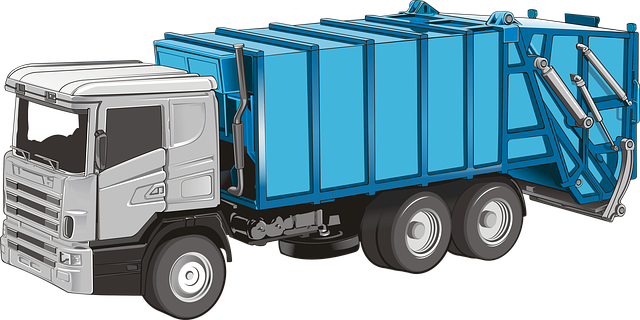Starting a trucking business requires careful risk management, with trucking insurance being a crucial component for new enterprises. By addressing operational risks like accidents and breakdowns, financial challenges including cash flow and market fluctuations, and implementing proactive measures such as maintenance and driver training, new businesses can achieve stability and growth. Comprehensive trucking insurance protects against liabilities, cargo losses, and roadside emergencies, showcasing a forward-thinking approach that builds trust and enhances long-term success in the unpredictable trucking industry.
Launching a trucking business comes with inherent risks, but effective management can ensure a strong foundation. This guide navigates the crucial early years, offering insights into identifying and mitigating potential hazards unique to the trucking industry. From understanding various risk types to exploring proactive strategies like trucking insurance, we provide essential tools for new businesses aiming to build resilience and long-term success. By adopting robust risk management practices, operators can confidently navigate an ever-changing marketplace.
Understanding Risks in the Early Stages of a Trucking Business

Starting a trucking business can be an exciting venture, but it’s also a complex operation filled with potential risks. New businesses must recognize that their biggest challenges often lie in navigating the early stages where operations are still being established and optimized. Understanding and managing these risks is crucial to ensuring long-term success.
One of the key aspects of risk management for any new trucking business is acquiring adequate insurance coverage. Trucking insurance protects against various liabilities, including property damage, injury to third parties, and even cargo loss or damage. It’s essential to work with reputable insurers who understand the unique risks faced by the trucking industry. By securing comprehensive insurance policies, new businesses can safeguard their assets and operations, which is vital in an industry where unexpected events can lead to significant financial losses.
Types of Risks to Anticipate and Mitigate

When launching a new business, particularly in the trucking industry, understanding and mitigating risks is vital for sustainability. There are several types of risks that new businesses should anticipate and prepare for to ensure smooth operations from day one. Firstly, operational risks include potential accidents, vehicle breakdowns, or weather-related delays, which can disrupt service delivery and incur significant costs. These risks can be mitigated through comprehensive trucking insurance, regular vehicle maintenance, and driver training on safety protocols.
Secondly, financial risks are common, such as cash flow management, pricing pressures from competitors, or unexpected market fluctuations that could impact profitability. Effective financial planning, including building an adequate reserve fund, securing loans with favourable terms (if required), and regularly reviewing pricing strategies, helps to navigate these challenges. Additionally, keeping abreast of industry trends and regulations related to trucking insurance policies can further reduce financial exposure for new businesses.
Strategies for Effective Risk Management with Trucking Insurance

New businesses in the trucking industry face a unique set of challenges when it comes to risk management due to the inherent dangers and regulatory environment of the sector. Effective risk management with trucking insurance is a cornerstone for ensuring operational continuity and financial stability during these early years. One key strategy involves comprehensive coverage that includes liability, cargo protection, and roadside assistance. These policies shield against potential losses from accidents, theft, or damage, which are common risks in trucking operations.
Additionally, new businesses should adopt proactive risk mitigation practices such as regular vehicle maintenance to minimize mechanical failures, driver training programs to enhance safety, and adherence to traffic regulations. Investing in technology like GPS tracking systems and telematics can also help monitor driver behavior, improve route efficiency, and reduce the risk of accidents. A robust risk management strategy with trucking insurance is not just a compliance measure; it’s an investment that safeguards against unforeseen events, enabling businesses to focus on growth and expansion rather than unexpected setbacks.
Building Resilience: Long-Term Benefits of Proactive Risk Handling

Building resilience is a key aspect of successful risk management, especially for new businesses in dynamic industries like trucking. By proactively identifying and handling risks, trucking companies can create a robust foundation that offers long-term benefits. This includes enhanced operational stability, allowing businesses to navigate unexpected challenges with ease and ensuring their survival and growth over time.
Effective risk handling fosters a culture of preparedness among employees, encouraging them to anticipate potential issues. This proactive approach extends beyond immediate cost savings; it contributes to the overall development of a resilient business model. For instance, having comprehensive trucking insurance not only mitigates financial losses but also demonstrates a forward-thinking strategy that accounts for the unpredictable nature of road operations, thereby fostering trust among stakeholders and investors alike.
Starting a trucking business is an exciting journey, but it’s crucial to navigate risks proactively from day one. By understanding and anticipating various hazards, implementing effective risk management strategies like comprehensive trucking insurance, and fostering resilience, new businesses can ensure sustained growth and success in the competitive trucking industry. Investing in robust risk handling practices is key to thriving long-term, as it protects against unexpected challenges and paves the way for a prosperous future. Remember, a well-managed risk profile is the cornerstone of any thriving trucking enterprise.
